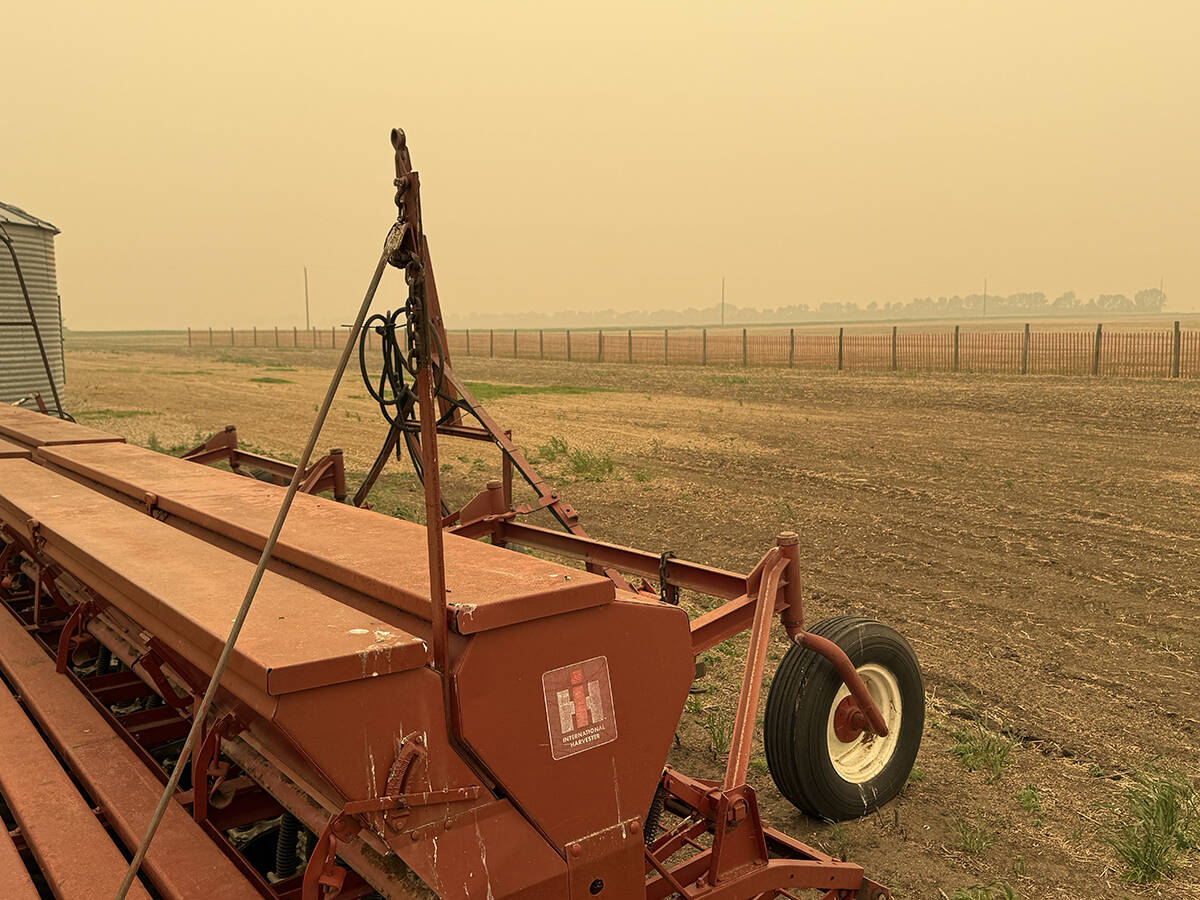REGINA – A joint venture between local farmers and a Dutch pig breeding company has resulted in a new North American company based in Kipling, Sask.
Dalland Value Added Pork Inc. was formed by six local family farm units and Dalland, the second largest hybrid pig breeding company in the world, said president Brian Tennant.
Three shipments totaling 870 pigs have been through quarantine and have arrived at new facilities just east of Kipling, about 150 kilometres east of Regina. Tennant said this marks the first time in 37 years that pigs have been imported to Canada from mainland Europe.
Read Also

Wildfires have unexpected upside this year
One farmer feels smoke from nearby wildfires shrouded the July skies and protected his crop from the sun’s burning rays, resulting in more seeds per pod and more pods per plant.
“Most (Canadian) breeding stock originated in England,” Tennant said, adding the investors worked on a deal with Dalland for nearly three years because “nobody has addressed meat quality as much as the Europeans.”
According to Tennant, Dalland slaughter pigs are known for being uniform, heavily muscled and lean – qualities desired by consumers and packers.
Tennant said Dalland pigs are also free of the Porcine Stress Syndrome gene which causes inferior quality meat.
The Kipling nucleus barn houses 320 sows. Tennant said sales of breeding stock will focus mainly on boars. Stock that doesn’t meet certain criteria will be sold for slaughter.
Already the company is making inroads in the U.S. Premium Standard Farms of Missouri plans to buy Dalland boars from Kipling to double its 120,000-sow operation.
Dalland VAP will be using artificial insemination in its breeding program, which determines all breeding by computer and genetics.
“Dalland uses herd population genetics,” Tennant said. “They try not to have one animal have too much influence in the herd. A nucleus animal is only allowed 40 to 50 matings because they don’t want big variations in the herd.”
Tennant said Dalland VAP is interested in helping farmers set up AI stations on their farms. He said the use of AI technology is more efficient and allows greater genetic control.
“You don’t need to feed as many animals or buy as many boars,” he said.















